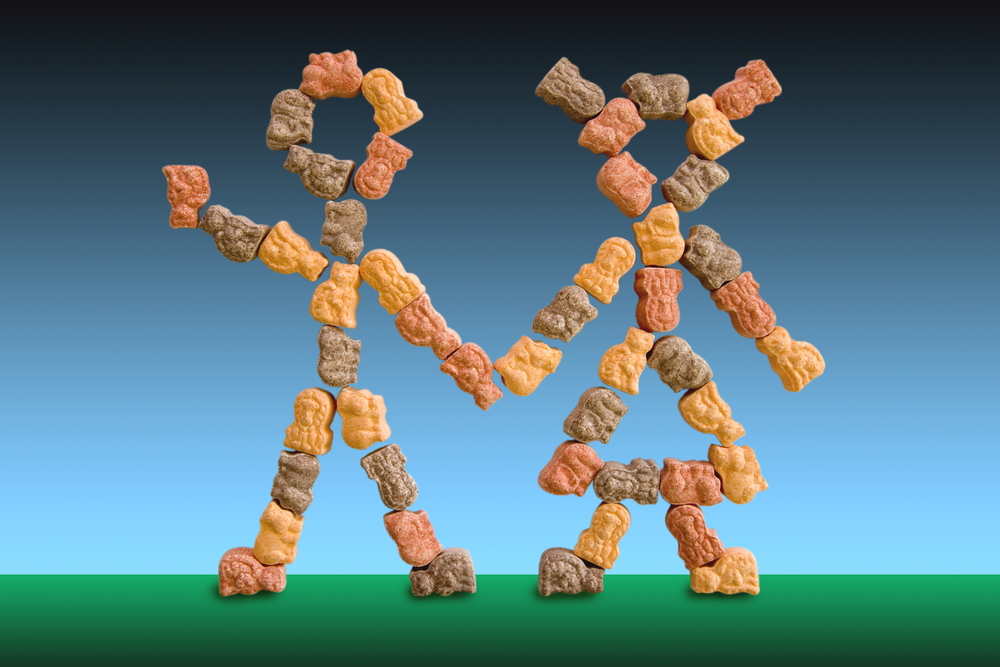Your child’s diet may be playing apart in their mood and behavior. Nutritional deficiencies are prevalent today, even with wide access to many different food options. A poor quality of diet may be playing into why your child is misbehaving. Sugar does not always have to be the culprit. It may not be what your child is eating currently, but what their diet is missing.
Symptoms Of Nutritional Deficiency
Symptoms that a deficiency diet can cause are confusion, apathy, lack of energy, depression, irritability, headaches, shortened attention span, reduced intellectual performance, lowered IQ, conduct disturbances, hyperactivity, weakness, persistent colds, stomach aches, constipation, diarrhea, and bedwetting.
Common Childhood Deficiencies
What your child eats plays a crucial role on their mood, behavior, and overall health. Some of the most common deficiencies in children are iron, magnesium, zinc, thiamine, riboflavin, niacin, folacin, vitamin A, vitamin C, vitamin D, vitamin B complex. Your child may even be lacking in protein or even calories. All of these can cause behavioral changes.
Iron
Iron deficiency is the most common nutrient deficiency in children and adults. Sometimes children will have an iron deficiency that isn’t quite low enough to show up on a blood test as being too low. But low iron levels can cause shortened attention spans, poor school performance, hyperactivity, irritability, fatigue, and weakness.
Iron is super important in children under the age of two years, because this is a big brain development time. Low iron can cause deficiencies in muscle and brain function long term if left untreated.
Your child can take iron supplements. Iron rich foods are lean meats, eggs, baked beans, lima beans, peas, raisins, prunes, strawberries, and watermelon. Children who have low iron may be misdiagnosed with hyperactivity, depression, or be deemed as unruly.
Magnesium
Another common deficiency in children is magnesium. Magnesium causes a calmer central nervous system and can help increase your attention span. Low magnesium levels are common in children who have been diagnosed with ADD or ADHD. Supplements of magnesium combined with vitamin B complex have shown to help with hypertonia, tremors as well as inattention, aggression, hyperactivity, and impulsivity.
Foods that are high in magnesium are avocados, nuts, legumes, seeds, and whole grains.
Zinc
Zinc is needed for brain and cell communication. If you have low zinc levels it can cause you to be unresponsive to stimulants, medications, and essential fatty acid supplements. Low zinc can affect your mood and sleep cycle.
Foods that are high in zinc are meat, shellfish, legumes, and seeds.
Vitamin B
Vitamin B helps regulate your mood and behavior. Vitamin B facilitates your neurotransmitter production. With a healthy vitamin B level it has shown that children have better mental health and overall wellbeing. Seeds, nuts, whole grains, vegetables, fruits, and legumes are all high in vitamin B. Vitamin B is also important in immunity health building.
Vitamin D
Vitamin D is another common vitamin deficiency. The sun is the best source, but in winter months can be hard to reach optimal vitamin D levels. There are supplements that can be taken to help with vitamin D levels. Vitamin D plays a role in mood, energy and sleep. When your vitamin D levels are normal or high you will have a better mood, energy and sleep better as well. Vitamin D is what your body uses to enable function of all cells.
Protein
Protein is the building block of the brain and body. Having a high protein diet will help you feel energized and motivated. Protein supports your attention, social, and behavior function. When you have a protein deficiency it can cause poor concentration, fatigue, and some negative physical impacts as well.
Good sources of protein are poultry, lean meats, seafood, dairy products, and fish.
Causes Of Nutritional Deficiencies
Many things can affect your child’s ability to absorb nutrients properly. If they have a digestive disorder, imbalanced diet, stress, or certain medications can all play a role in how your child’s body absorbs nutrients. If your child suffers from a nutrient deficiency they may suffer from frequent illnesses, and it can cause trouble in their growth.
If you think your child is lacking in nutrients in their diet, start writing down a food journal so you can identify where they are lacking. It is important to try to feed your children the appropriate servings of each nutrient they need daily. If your child has any food intolerances or allergies it is important to identify those with your pediatrician so you can best manage them getting the proper nutrition with some dietary restrictions.
Want to improve your family’s nutrition levels? Purium’s MVP Family is packed with plant-powered protein and other whole food nutrients for optimal absorption and all-day energy. Its natural chocolate flavor is delicious and kid-approved!
Misbehaving can be a sign of a nutritional deficiency! #HealthSurgeon
Sources:
https://www.latimes.com/archives/la-xpm-1985-04-25-fo-12394-story.html
https://www.imi.com.hk/childrens-health-nutrition-deficiency-and-behaviour.html
https://www.moms.com/ways-nutrition-affects-kids-behavior/
https://www.healthline.com/nutrition/best-foods-high-in-zinc#TOC_TITLE_HDR_5









